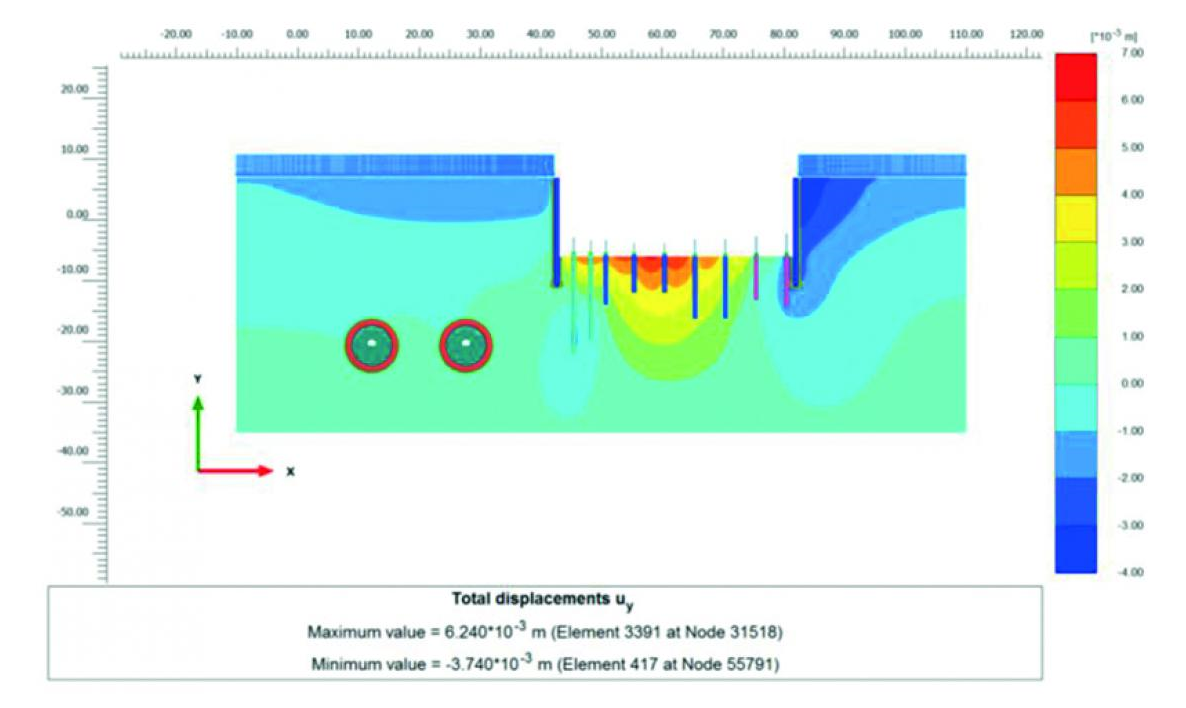TERRASOL assisted ACES Qatar in the assessment of the impact of a building construction on two adjacent existing lines of the Doha metro. The building foundation system is a raft on piles designed as floating piles. Piles closest to the metro tunnels were equipped on the top 3 to 7 meters with permanent casings to reduce friction mobilization.
The objective of the study was to evaluate the displacements and internal forces of the tunnel structure during the different execution phases and in particular the pile loading phase which represents the application of the total building loads.
The analysis was performed using a Plaxis 2D finite-element model integrating the different construction phases including dewatering, a 13 m deep excavation, foundation pile creation and vertical loading. Model input data included the soil stratigraphy (Simsima Limestone, Midra Shale and Rus formation) represented using a Mohr-Coulomb behavior law, temporary shoring wall consisting of contiguous Ø600 or 700 mm piles, tunnel structures (plate elements) and foundation piles of various diameters and loads (embedded beam elements).
Model results showed that the tunnels are outside the construction influence zone with negligible displacement records. Comparison of force magnitudes between tunnel initial construction stage and pile loading stage also indicated negligible incremental axial loading.
The analysis also provided the vertical and horizontal displacement values at selected locations and depths corresponding to the instrumentation equipment (inclinometer and extensometer) implemented to monitor actual ground displacements during execution works.
Terrasol’s achievements
Evaluation study of the displacements and internal forces of the tunnels structure during the different execution phases
 Agent Access
Agent Access 




